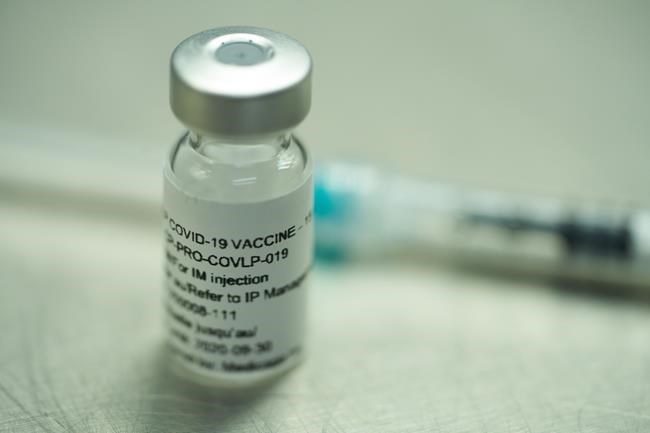OTTAWA — The World Health Organization says it is reviewing its policies after opting not to accept a made-in-Canada COVID-19 vaccine for emergency use.
Health Canada authorized Medicago's two-dose Covifenz vaccine in February for adults 18 to 64.
WHO did not accept Medicago's application to be added to the list of vaccines approved on an emergency basis because it has a strict policy not to engage with companies that promote tobacco, and Philip Morris owns about one-fifth of the company.
"Medicago was informed of this decision and has been apprised of WHO’s policies on tobacco," the WHO said in a statement Friday.
That policy could change, as the WHO enters into discussions to explore different policy options for health products linked to the tobacco industry.
"WHO is currently holding discussions on how to address a general trend of the tobacco industry investing in the health industry," the organization said.
Medicago's application could be reviewed once WHO makes a decision.
University of Ottawa law professor David Sweanor, who has made a career of going after tobacco companies in court, said the WHO's current policy is "absolutist to the point of absurdity," and overdue for review.
Sweanor said the university has run afoul of the policy in the past because he has been supportive of harm-reduction strategies when it comes to tobacco companies using less-harmful forms of nicotine.
When it comes to tobacco companies investing in pharmaceuticals, not only does the policy deprive the world of potentially life-saving medicine, it also discourages the companies from diversifying away from the sale of cigarettes, he said.
"What we want the companies to do is have an incentive to sell less hazardous products andlife-enhancingproducts, and less incentive to have to sell the deadly products."
The WHO has authorized 10 COVID-19 vaccines for an emergency-use licence, including Pfizer, Moderna, Oxford-AstraZeneca and Johnson & Johnson.
The company said Friday it's still waiting to hear from WHO about the specific rationale for not approving its vaccine.
"Once we receive this, we will review the rationale and continue to discuss next steps with our partners and shareholders," Medicago president Takashi Nagao said in a statement.
Medicago has created the only COVID-19 shot that uses vaccine-like particles grown in a plant.
The federal government signed an agreement with Medicago in 2020 to buy 20 million doses once the vaccine was approved by Health Canada, with an option to purchase 56 million more.
The government's ability to donate those doses to countries in need could be seriously impeded without WHO emergency approval.
A WHO emergency-use licence is required for a vaccine to be used by the COVAX vaccine-sharing alliance, the main mechanism for helping get vaccines to people in countries that can't afford to buy them.
Without WHO approval, Canada won't be able to donate any of its doses to the alliance, which is desperate for them to reach its goal of vaccinating 70 per cent of people in every country by July.
Health Minister Jean-Yves Duclos says he wants to see the Medicago vaccines help protect people from COVID-19 around the world.
"We know that Health Canada has approved that vaccine because of its very high level of safety and its incredible level of efficiency, but we know that it should be useful outside of Canada," he said during a press conference Friday.
He said he would work with the company and Innovation Minister François-Philippe Champagne in hopes of convincing WHO to reconsider its initial decision on the Medicago vaccine.
In a statement, Health Canada said the government can also work with individual countries to donate surplus doses.
The doses are not immediately needed in Canada, as more than 89 per cent of adults over the age of 18 have already had two doses of an approved vaccine as of March 20, the Public Health Agency of Canada's data shows.
Medicago's shots could come in handy as part of Canada's domestic vaccine strategy later though, Duclos said.
"We need to protect against those new variants and those new waves. Protecting means enlarging the set of tools that we will be able to draw on when these new variants and these new waves will come," he said.
This report by The Canadian Press was first published March 25, 2022.
Laura Osman, The Canadian Press




